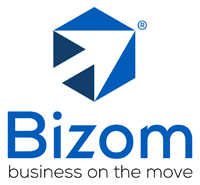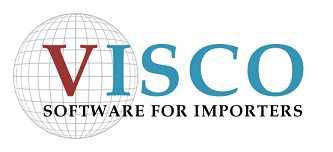Description

Bizom

VISCO
Comprehensive Overview: Bizom vs VISCO
To provide a comprehensive overview of Bizom and VISCO, let's break down the information into the specified subcategories.
a) Primary Functions and Target Markets
Bizom
Primary Functions:
- Retail Execution Software: Bizom is designed to streamline retail operations and enhance field sales efficiency.
- Distribution Management: It offers tools for inventory management, order processing, and delivery tracking.
- Sales Force Automation: The platform automates routine tasks for sales representatives, optimizing route planning, and sales processes.
- Data Analytics: Bizom includes detailed analytics and reporting features, helping companies make data-driven decisions.
Target Markets:
- Consumer Packaged Goods (CPG): Companies distributing goods to various retailers.
- Fast-Moving Consumer Goods (FMCG): Organizations dealing with essential products that have quick turnover.
- Retail Chains: Large retail entities aiming for efficient operations and increased sales.
VISCO
Primary Functions:
- Import/Export Management Software: VISCO specializes in managing international trade operations.
- Inventory Management: It provides detailed insight into stock levels, orders, and shipment tracking.
- Cost Management: The software secures visibility into costs associated with shipping and import/export activities.
- Sales and Purchase Order Management: Streamlines order processing and ensures efficient transaction handling.
- Logistics and Compliance: Features tools for monitoring compliance with international trade laws and regulations.
Target Markets:
- Importers and Exporters: Businesses engaged in international trade.
- Wholesalers: Companies that manage inventories and distribute products to various sectors.
- Logistics Companies: Firms that require sophisticated logistics tracking and management.
- Distributors: Organizations looking to streamline their cross-border operations and supply chain.
b) Market Share and User Base
Bizom
- Market Share: Bizom is a significant player in the retail and FMCG sectors, particularly in regions such as India and other emerging markets. However, its market share is predominantly regional rather than global.
- User Base: The platform caters to a diverse range of companies within its sectors, from small local businesses to large multinational firms. Its user-friendly interface and comprehensive feature set have made it a popular choice among field sales teams.
VISCO
- Market Share: VISCO holds a niche market position focused on import/export operations, particularly strong among small to medium-sized enterprises (SMEs) involved in international trade.
- User Base: Its primary clients are entities that are regularly involved in cross-border commerce. VISCO’s user base is concentrated in regions with high volumes of import/export activities such as North America and parts of Europe.
c) Key Differentiating Factors
Bizom
- Focus on Retail and FMCG: Bizom’s specialized tools are tailored specifically for retail execution and FMCG companies, providing industry-specific features.
- In-depth Analytics for Retail: Offers detailed analytics aimed at sales forecasting, market trends, and performance tracking specifically for retail environments.
- Mobile Optimization: Designed for field sales teams, it emphasizes mobile functionality for representatives on the go.
VISCO
- Import/Export Focus: Specializes in managing international trade which differs from Bizom’s focus on retail execution.
- Cost and Compliance Management: Offers specialized tools for tracking shipping costs and ensuring compliance with international trade regulations, which is critical for businesses engaged in import/export.
- ERP Integration: VISCO often integrates with existing ERP systems to enhance overall business process management for companies involved in global trade operations.
In summary, Bizom and VISCO serve distinct markets with tailored functionalities. Bizom addresses the needs of the retail and FMCG sectors, focusing on sales force automation and retail analytics. In contrast, VISCO is geared towards import/export management, emphasizing compliance and cost management. Their market share and user base reflect their specific industry focus and geographic strengths.
Contact Info

Year founded :
2008
+91 11408 46338
Not Available
India
http://www.linkedin.com/company/mobisy-technologies-pvt-ltd

Year founded :
Not Available
Not Available
Not Available
United States
Not Available
Feature Similarity Breakdown: Bizom, VISCO
To provide a comprehensive similarity breakdown between Bizom and VISCO, we need to look into both products' core features, user interfaces, and unique capabilities. It's important to note that feature details might vary as software updates are frequently released.
a) Core Features in Common
Both Bizom and VISCO are supply chain and sales force automation solutions, and they share several core features:
-
Inventory Management: Both platforms offer functionality to manage inventory levels, handle stock-keeping units (SKUs), and facilitate inventory tracking.
-
Order Management: They support order processing, tracking, and management inclusive of sales orders and purchase orders.
-
Analytics and Reporting: Each system provides reporting tools to offer insights into sales, inventory, and supply chain performance.
-
Customer Relationship Management (CRM): They include basic CRM capabilities to manage customer data and relationships.
-
Integration Capabilities: Both products are designed to integrate with other enterprise resource planning (ERP) systems and accounting software to streamline operations.
b) User Interface Comparison
-
Bizom: Generally designed with a focus on field sales forces, Bizom's interface is mobile-first, making it highly responsive and accessible for sales personnel on the go. Its app-centric design emphasizes real-time data access and easy navigation for field agents.
-
VISCO: This solution typically caters more towards importers and distributors, with a desktop-oriented interface. VISCO provides detailed dashboards that allow users to drill down into inventory and logistics data, prioritizing depth over a user experience tailored for mobile field operations.
c) Unique Features
-
Bizom: A key unique feature of Bizom is its emphasis on last-mile distribution and sales force efficiency. It offers specialized tools for field sales teams, such as order capturing, retailer engagement, and beat planning, optimizing the efficiency of sales representatives.
-
VISCO: VISCO stands out with its focus on import-export processes. It provides specific features like landed cost tracking, global compliance management, and extensive capabilities for managing international trade—making it particularly suitable for businesses involved extensively in imports and exports.
Conclusion
While both Bizom and VISCO cater to aspects of supply chain and sales management, their targeted user bases are slightly different, guiding their feature development. Bizom is more field sales and distribution-oriented, while VISCO is tailored towards importers and exporters with complex logistics requirements. Consequently, companies should choose based on their specific operational needs and the industry they are part of.
Features

Not Available

Not Available
Best Fit Use Cases: Bizom, VISCO
Bizom and VISCO are both powerful tools tailored for supply chain and inventory management, but they cater to slightly different needs and business environments. Here's a breakdown of their best fit use cases:
Bizom
a) Best Fit Types of Businesses or Projects for Bizom:
-
FMCG and Retail: Bizom is particularly well-suited for Fast-Moving Consumer Goods (FMCG) companies and retail businesses that need to manage a large number of stock-keeping units (SKUs) and distribution networks. It is ideal for companies looking to streamline their sales, distribution, and retail execution processes.
-
Consumer Packaged Goods (CPG): Companies in the CPG sector can leverage Bizom for better market intelligence, sales force automation, and retail execution. Its capabilities in managing promotions, capturing market insights, and tracking sales performance make it invaluable.
-
Field Sales and Distribution Management: Businesses with extensive field sales teams needing real-time data synchronization and insights would benefit from Bizom's mobile-first platform. It provides tools for order management, inventory tracking, and performance analytics.
-
Regional or Global Businesses: Enterprises operating across different regions or countries will find Bizom's ability to handle complex distribution channels and multilocation inventory management useful.
d) Catering to Different Industry Verticals or Company Sizes:
- Industry Verticals: While focusing mostly on retail, FMCG, and CPG sectors, Bizom’s flexibility allows adaptation to other industries with similar distribution models.
- Company Sizes: It's suitable for medium to large enterprises that require robust distribution management solutions, though some smaller businesses with complex distribution needs might also benefit.
VISCO
b) Scenarios Where VISCO is the Preferred Option:
-
Import/Export Businesses: VISCO excels in managing international trade needs, particularly import and export businesses. It provides tools for handling complex documentation, compliance, and logistics tracking.
-
Small to Medium-Sized Enterprises (SMEs): Companies that focus on importing goods and distributing them locally or regionally can use VISCO to streamline their operations. It helps manage everything from initial order placement to final delivery.
-
Commodity Traders: Businesses dealing with bulk commodities that require detailed tracking and forecasting can leverage VISCO’s strong analytics and reporting capabilities designed for commodities.
-
Customs Documentation Management: VISCO helps businesses efficiently manage and automate customs compliance and documentation processes which are crucial for international trade.
d) Catering to Different Industry Verticals or Company Sizes:
- Industry Verticals: VISCO is most effective in industries that require meticulous logistics management, such as import/export, trading, and distribution - primarily across verticals that deal in bulk goods like textiles, raw materials, or electronics.
- Company Sizes: It is ideally suited for small to medium-sized companies, providing a cost-effective solution for managing trade operations without the overhead of more extensive enterprise solutions.
In sum, Bizom is best for businesses with expansive distribution networks requiring advanced retail execution and field sales management, while VISCO is tailored for import/export and trading companies focusing on comprehensive logistics and documentation management.
Pricing

Pricing Not Available

Pricing Not Available
Metrics History
Metrics History
Comparing teamSize across companies
Conclusion & Final Verdict: Bizom vs VISCO
To provide a well-rounded conclusion and final verdict for Bizom and VISCO, we must evaluate their strengths, weaknesses, and how they cater to the needs of potential users.
Conclusion and Final Verdict
a) Best Overall Value:
The determination of which product offers the best overall value will depend on the specific needs and scale of the business. If a company is heavily reliant on supply chain optimization and requires robust analytics for a large sales force, Bizom may present slightly better value due to its focus on comprehensive distribution management and field force productivity enhancement. On the other hand, if a business prioritizes visual data and operational insights with ease of use, VISCO could be more valuable due to its simplified and intuitive interface designed for effortless user experience.
b) Pros and Cons:
Bizom:
-
Pros:
- Comprehensive supply chain and distribution management capabilities.
- Strong analytics and reporting tools that cater to large sales teams.
- Focus on improving on-ground sales productivity and efficiency.
- Integrations with various platforms, enhancing functionality.
-
Cons:
- May be more complex to implement and require significant user training.
- Higher cost for SMEs or smaller teams due to extensive features unnecessary for smaller scale operations.
- Potential over-reliance on tech support for optimization in the initial stages.
VISCO:
-
Pros:
- User-friendly interface with a focus on visual data presentation.
- Easier implementation process, suitable for businesses looking for quick integration.
- Generally more affordable for smaller businesses or teams with fewer resources.
-
Cons:
- May lack some of the advanced features required by larger enterprises for comprehensive supply chain management.
- Potentially limited customization options compared to more sophisticated platforms.
c) Recommendations:
For users trying to decide between Bizom and VISCO, it is crucial to consider the following recommendations:
-
Assess Your Business Size and Needs:
- Large enterprises or businesses with a complex supply chain should lean towards Bizom to leverage its comprehensive features.
- Smaller businesses or those prioritizing visual data insights and ease of use might benefit more from VISCO.
-
Evaluate Resources and Budget:
- Analyze budget constraints and determine which platform offers more within your financial capability without sacrificing essential features.
-
Consider the Learning Curve:
- If your team is wary of a steep learning curve, VISCO’s user-friendly interface might be more appealing.
- If your business values robust features and is willing to invest time in training, Bizom could offer more long-term benefits.
-
Trial Usage:
- Take advantage of any trial periods or demos offered by both platforms to get a feel for which system integrates better with your existing processes.
By considering these factors and aligning them with their specific priorities, businesses can make a more informed decision tailored to their operational objectives.
Add to compare
Add similar companies



